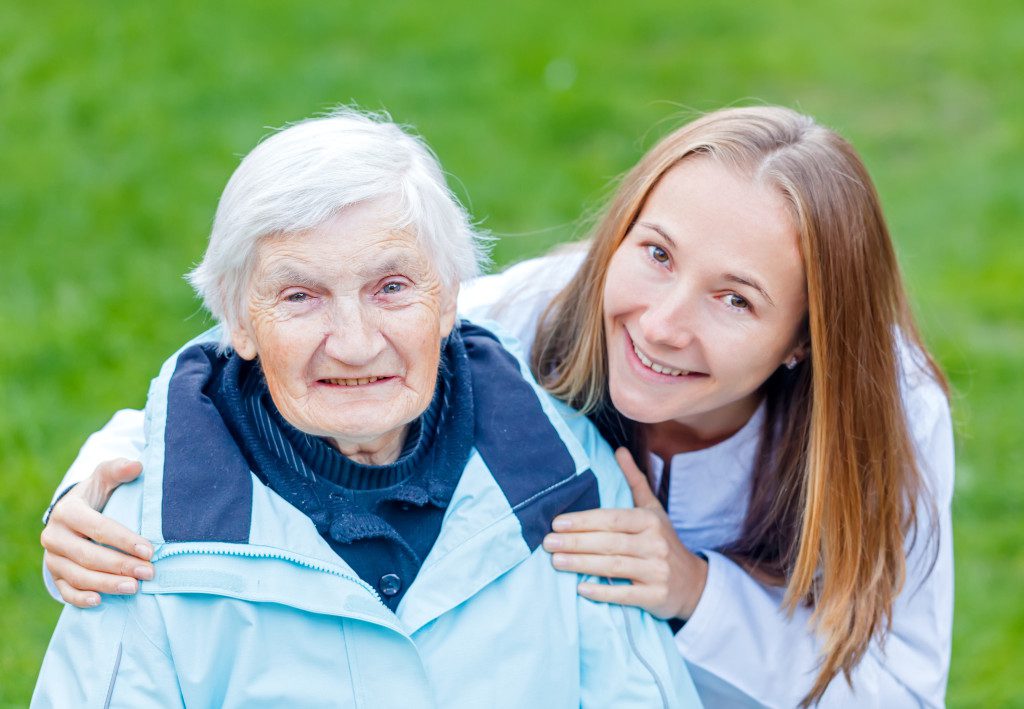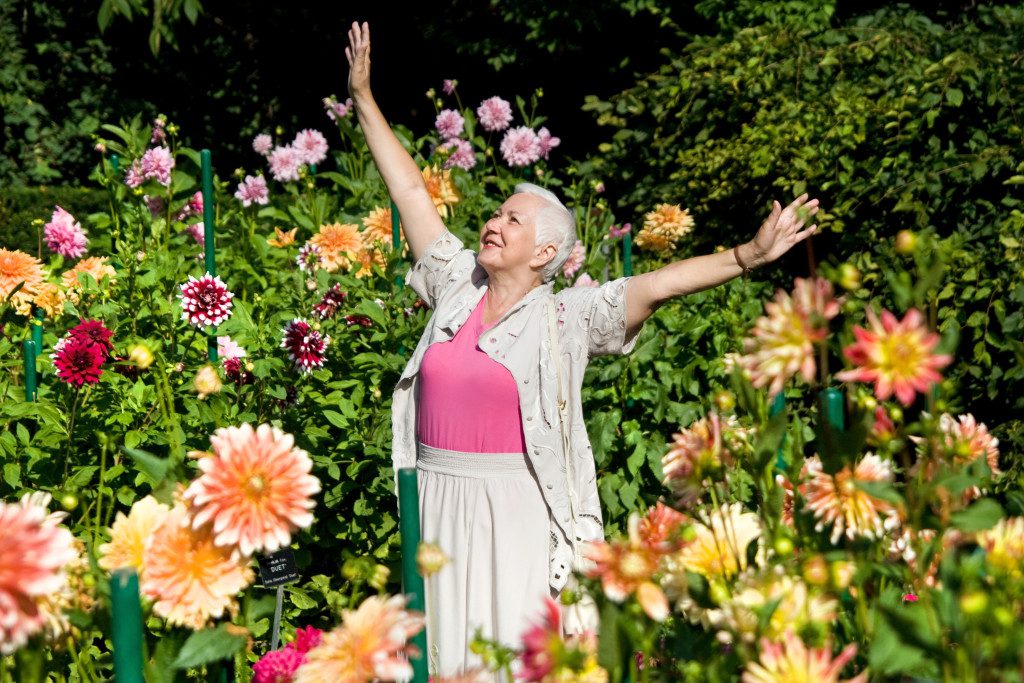Caregiving can be a challenging situation, but it brings with it a range of complexities that others aren’t aware of. Here are 8 important things you didn’t know about caregiving.
It’s Tiring and Confusing Emotionally
 There are a lot of physical challenges that come with being a caregiver, but the emotional ones tend to be even more significant.
There are a lot of physical challenges that come with being a caregiver, but the emotional ones tend to be even more significant.
Caregivers often find that they go through a wide range of emotions. Some of these may be positive but others will be negative.
Resentment, anger, bitterness, sadness, disappointment, hopelessness, low self-esteem, despair, and happiness are just some examples of the many different emotions that caregivers feel.
At the same time, caregivers tend to be in close proximity to the person they are caring for a lot of the time, although this will vary depending on your specific situation. Often this closeness can be difficult because we all find that we need space from other people and in a caregiving relationship, there is often nowhere to go.
It is perfectly alright to feel angry or upset about caregiving some days – and most caregivers will. In fact, staying balanced emotionally can be difficult and many people struggle to accept their role as a caregiver,
Finding people to talk to and connect with is a critical way of coping with the emotions that come with caregiving. People often find it helps to realize that there are others in the same position as them.
It Isn’t Like Having Another Kid
 When people try to empathize with caregivers, they often say it must be like having another child. In some ways, this is true but in most ways, it really isn’t.
When people try to empathize with caregivers, they often say it must be like having another child. In some ways, this is true but in most ways, it really isn’t.
If you’re caring for an elderly parent or family member that individual has a lifetime of experiences and opinions. They also have had a lifetime where they were responsible for their own decisions. Most adults aren’t willing to give that up. That isn’t surprising because many of us would feel similarly.
The end result is that many seniors are opinionated and stubborn about their care and their needs. This can be a good thing because you have the chance to have adult conversations about what they want and what is needed as part of their care.
But, at the same time, those factors can make being a caregiver more challenging.
When you are caring for a child, you have authority over them and you can tell them what to do. They might argue and they might refuse, but in general, you do have that authority.
This isn’t the case when caring for a parent.
Instead, they will often want to know why you want things done in a specific way and may not always agree with you. Reaching a conclusion with a senior often requires a lot of energy and effort – something that many caregivers find difficult. After all, the process of caregiving itself is challenging, having to explain things just makes the process that much more complicated.
It Will Affect All Your Relationships
 Many new caregivers are surprised at how much of an impact caregiving can have, especially on relationships.
Many new caregivers are surprised at how much of an impact caregiving can have, especially on relationships.
First of all, being a caregiver will significantly alter the relationship between yourself and the person you are caring for. In some ways, you may become close to that person, but the relationship will also become strained in other ways.
For example, if you are caring for a parent you are trying to take a position of authority over someone who raised you. Emotionally, this can be difficult f or everyone. Even if you don’t notice many differences there can often be subtle impacts on a relationship including underlying tension.
The impacts of caregiving also extend to other parts of your family and to your friends.
Personally, I found that very few of my friends could relate to the lifestyle that came with caregiving and so they tended to drift away. This is often the case, especially if your caregiving situations makes it difficult to leave the person you are caring for alone.
Even if you do have friends that will stick with you, you will often find that your relationships with them change. One reason for this is that they will not understand the complexities of caregiving or many of the emotions that you find yourself facing. Another reason is that you have to be home a lot as a caregiver and may also find yourself staying home ‘just in case’. This can leave you with very little opportunity for spending time with friends.
These relationship issues are one reason why caregiving is extremely isolating socially.
It’s very easy to end up with a social life that almost entirely revolves around the person you are caring for – which certainly isn’t healthy.
You Have to Make Very Hard Decisions
 Decision making is one of the biggest challenges of caregiving. Often you are faced with situations where there is no easy answer and no clear indication of what approach is best. Other times, you might be faced with having to go against what the person you are caring for wants, in order to promote their health.
Decision making is one of the biggest challenges of caregiving. Often you are faced with situations where there is no easy answer and no clear indication of what approach is best. Other times, you might be faced with having to go against what the person you are caring for wants, in order to promote their health.
One example of this is driving.
As seniors age, their ability to drive tends to decrease and many medical conditions can make driving unsafe. At some point, it becomes necessary for a senior to stop driving.
However, driving represents independence and many seniors are extremely reluctant to give this up. As a caregiver, it may come to the point where you have to step in and stop the senior from driving anymore. This can be an incredibly difficult decision.
In many cases, decisions can seem that much harder because there are few people around that you can talk to about the challenges that you face. This is one reason why finding social support is so very important for a caregiver – and there are support groups out there that can help considerably.
It Can Be Gradual
One key thing that you didn’t know about caregiving is that it can be a progression over time. This isn’t the case every time, but often the transition from not being a caregiver to being a caregiver isn’t sudden.
In many cases, the first step in this transition might be an elderly parent or parent-in-law coming to live with you. At first, the senior may be fully competent and be able to meet all of their needs. But, as time goes on, their ability to meet their needs can decrease while your role increases.
This gradual change of roles comes with its own challenges.
Perhaps the most significant issue is that you don’t get the time to reflect on your role and the impact that it is having.
This was the case when I was a caregiver. Because my role changed gradually, I didn’t think of myself as a caregiver for a long time. As a consequence, I didn’t focus much on self-care and I certainly didn’t look for other solutions to many of the challenges that I faced.
Doctors Can Be Challenging to Deal With
 In general, doctors tend to have a strong focus on ‘fixing’ health issues and prolonging life. In most cases, this is a desirable approach but it does come with some challenges for caregivers.
In general, doctors tend to have a strong focus on ‘fixing’ health issues and prolonging life. In most cases, this is a desirable approach but it does come with some challenges for caregivers.
Often, efforts to prolong life come at the cost of quality of life. This is one reason why seniors often end up on a large number of pills and may also have very strict dietary instructions.
As a caregiver, it’s really important to work with the doctor and with the person you are caring for to work out what really is best for your given situation. Sometimes the best approach won’t be what the doctor automatically gravitates towards and it’s important to figure this out rather than assuming the doctor’s approach is correct.
For myself, my caregiving role primarily involved caring for my husband, but I also played a partial caregiver role for my mother-in-law. In both cases, I noticed that doctors were also frequently unrealistic about what their patient could (and would) do.
One example of this was salt intake.
I knew from experience that my mother-in-law’s salt intake was very high. She ate mostly processed food and loved it. But, she would tell the doctor that she didn’t eat much salt – because she didn’t put salt on her food. In theory, she knew that there was salt in her food, but regardless of what we told her, she never thought that she actually consumed much salt.
I found that most doctors would tend to take her word for it and would believe her for pretty much any behavior – even though she had significant memory problems.
Finding a doctor who would be focused on finding ways to improve her health and would be realistic about what to expect was pretty much impossible in our case.
Emotions Can Be Contagious
 Caregiving puts you in an intense relationship with another person and tends to offer very little breathing room.
Caregiving puts you in an intense relationship with another person and tends to offer very little breathing room.
One outcome that you didn’t know about caregiving is that emotions will often pass from you to the person you are caring for and back the other way. This is true for positive emotions and for negative ones.
For example, if you are anxious you may make the person you are caring for anxious too. This can feed back and end up increasing your own anxiety.
As a result, a caregiving relationship can easily amplify negative feelings, leaving both individuals suffering. This is one reason why patients and their caregivers will often end up with similar mental health conditions even if they don’t start out that way.
I know this one from experience, as both myself and my husband suffered from depression. Keeping us both level or positive was extremely challenging to do and we frequently found that our emotions would affect one another.
This makes it really important to be positive within a caregiving relationship, even when it is hard to do.
You Often Don’t Take Care of Yourself
Self-care is one of the most important things that a caregiver can do, but relatively few caregivers actually do take care of their own needs.
Much of this comes from the nature of caregiving.
Frequently caregivers find that they are constantly worrying and they don’t have the time to do many of the things that they should. Because of this, caregivers find that they need to sacrifice certain things and their own needs often end up being top of that list.
I found myself doing this frequently as a caregiver.
In my case, there literally wasn’t enough time in the day to do everything that I needed to do and there was no one that I could turn to for support.
Yet, not taking care of yourself can be incredibly counterproductive.
Being a caregiver is a difficult role and you will find yourself getting worn down quickly. That can decrease how effective you are as a caregiver and may also have negative impacts on the relationship between yourself and the person you are caring for.
Even though it isn’t easy, this makes it important to find the time to meet your own needs and to give yourself treats.
Regardless of your specific situation, there will always be some things that you can do to take care of yourself. Sometimes it is just a matter of sitting down and thinking about what you can do.
Remember, you are valuable and you should not put yourself last, no matter what.

Leave a Reply